On Saturday, November 14, 2015, altMuslimah (“altM”) and the Princeton Muslim Life Program co-hosted the symposium, Muslim Masculinity in an Age of Feminism. altM is dedicated to broadening the impact of the conversation. The Twitter highlights are recapped here. Below is part one of the video recording and transcript of the third panel, Politics and Activism. Part two is located here.
Shahed: Salaam Alaikum. We’ve spoken about some very serious issues related to masculinity, and spirituality, and family, and relationships, and we get now to a little more weighty (weighty given the events of the last day) issues. We’re going to talk about masculinity, and how it intersects with both other communities within our community, and other communities outside our community through politics, activism, things like that.
There’s a lot of power behind male masculinity, and… a lot of our communities have spent a good deal of time deconstructing it over the last several decades to try to rid it of the things that are more distasteful, trying [to] make sure that it accommodates women’s rights, and things like that.
In the process of deconstructing it, that masculinity is in flux. When you have a masculinity that’s in flux, because there’s a lot of power behind masculinity, it can be manipulated and taken advantage of in many ways. Many different communities look at Islam, and Muslims, often through the masculinity lens. For example, when groups of people who want to stigmatize, and demonize Muslims, they do it through the lens of an aggressive, threatening masculinity that threatens people and is violent.
Even when we look at the way that people try to highlight, say the status of Muslim women, they do it through that lens of Muslim men being abusive and things like that, so there’s lots of different ways that Muslim masculinity in flux is like a political football and run all over the place. That’s because in the absence of us reconstructing it in a way that is both authentic to being male, and in concert with what we believe should be a harmonious relationship between men and women. It’s in this context, and of course also, you see people who are extremists and psychopaths using a warped model of masculinity to lure people into their ways.
We’re privileged to have 4 speakers who each have a unique perspective on Muslim men’s masculinities and can highlight from their own backgrounds different ways to look at this deconstructed form, and possibly start having conversations about how to reconstruct it in ways that will serve our community, and humanity, from this point forward.
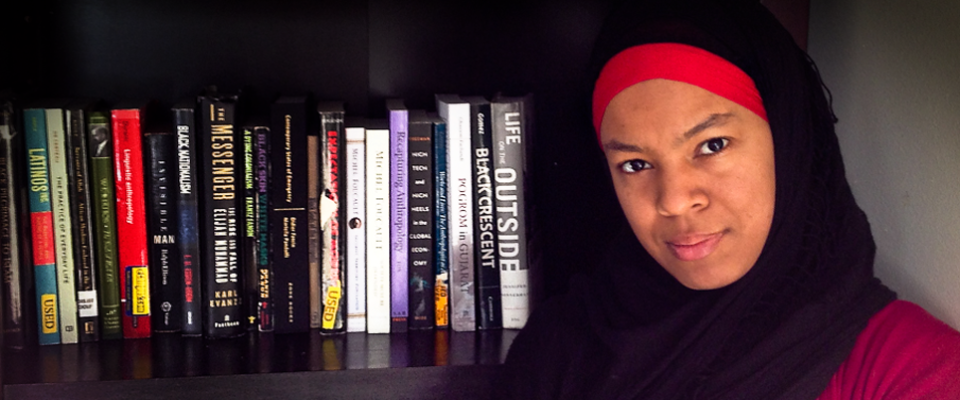 Donna: Masculinity is associat[ed] with the male gender and [there are] power relations that are inherent in that [association]. [Often, when] we discuss gender, it’s about women. In the same way that when we discuss race, race is about Black people, or Latino people. It’s not about White people, ever… Many of us, conceptually, think of [masculinity] as normative human experience and everything that is not masculine is not normative is gendered… We don’t think of the “normative space” as worthy of critical discussions and dissection. That’s a grave error because we’re not able to examine some of the ways that this dynamic is operating in the world.
Donna: Masculinity is associat[ed] with the male gender and [there are] power relations that are inherent in that [association]. [Often, when] we discuss gender, it’s about women. In the same way that when we discuss race, race is about Black people, or Latino people. It’s not about White people, ever… Many of us, conceptually, think of [masculinity] as normative human experience and everything that is not masculine is not normative is gendered… We don’t think of the “normative space” as worthy of critical discussions and dissection. That’s a grave error because we’re not able to examine some of the ways that this dynamic is operating in the world.
“What is masculinity? How is it constructed? What materials is it being constructed of? How are we putting together what we’re calling masculinity? What work is our creation doing? Once we’ve constructed something, what’s it doing?” These are all important questions for me to ask in this conversation. Part of what I’m going to do is to talk about some answers to those questions from the experience [of masculinity], [using the method of] phenomenology.
Phenomenology is a way of constructing knowledge, and… investigation that uses experience as a legitimate way to produce knowledge about the world. We have ways of constructing knowledge. We count things, or we observe things, or we do things like that to decide what is legitimate, and what’s really happening, and how to document a phenomenon. There are other ways to think about how to validate and talk about what’s happening in the world. Some of that is experiential, and that’s what phenomenology, as a method, is all about.
[What I will discuss today] is the experience of a masculin[ity], or a set of masculinities – because masculinity is not a monolithic phenomenon – from the experience of being a woman, particularly being a Black Muslim woman, and how my experience of masculinity has been.
Masculinity is often constructed at the expense of femininity, or at the expense of women. That’s my take home point. I’m not really interested in any type of masculinity, or any notions of masculinity, that are constructed at my expense. I think too often that’s what the setup is.
This panel is about issues of social justice, so I want us to think about how it is that we… seek social justice from things like racism, and Islamophobia, and economic oppression, while at the same time legitimize gender hierarchies, and oppressive regimes, and constructs based on what we say, what many of us say… is divine legitimacy.
We have these notions that what it means to be male, properly male, is fixed and essentialized in a way that basically enshrines dominance as the primary characteristic of what it means to be male. What it means to be manly, what it means to be a male, is how well you can rule over the women in your life.
We say that this is Islamic. We see it in all types of places, in our homes, in our communities, the way we talk about physical intimacy, sexuality and desire. How comfortable are we with the notion that a woman might have more sexual desire than her husband? Even in our most intimate moments, it’s about domination. Many of us can’t come to terms with a paradigm that doesn’t quite look like that.
We also see that many of our men are not equipped when they’re being raised… to be vulnerable.
A lot of what my colleagues were saying earlier, this is something that kept coming up for me, [about] what it meant to show the “feminine side”. Even if we were critiquing that notion about this connection of femininity with emotions like vulnerability, openness, and crying, we don’t think about [what] we associate with maleness and masculinity, like anger. Those are emotions too. Even when we’re having a critical conversation, sometimes the way we talk about this, [sets up] hierarchies that reinforce these paradigms of domination.
These hierarchies that we set up tend to replicate themselves in other arenas and then start criss-crossing. Not only do we set up paradigms of masculinity where men dominate over women, but we also set up these other paradigms where types of men dominate over other types of men. It may be a question of the chicken and the egg; we can talk about what comes first. But it’s more dynamic than that. It’s more like co-constitution. Issues of discrimination, slavery, Jim Crow, all of these types of things that are classically identified models of oppression and hierarchy that we replicate.. if we’re not from America originally, or our parents aren’t… into our own communities. We bring these into our readings of Quran and into our interpretations of Hadith. We re-enact them. Many of our communities have this ethnic hierarchy. Desi uncles dominate the African American men, and women, in the masjid. We think this is somehow Islamic. [It’s a common] situation where you have a [qualified] African American Qati get challenged in ways that a brother who’s Arab with half the knowledge would never get challenged.
We have all of these kind of intersecting, and interlocking, and co-constituting paradigms of oppression. These hierarchies that we are so hopelessly wedded to, that continue to structure our social relations.
We need to ask ourselves… what it means to be masculine, what masculinity is, and what masculinity should be. I should use that in the plural because – this is a very important point – we shouldn’t be striving for a Muslim masculinity because we have so much diversity. If I could just build [a man] like Build-A-Bear… I would take components from Rasulallah (SAW), Frederick Douglas, and Malcolm X. I would take a little bit from here and there because there are all these different models that can be used for building materials.
We need to think more closely and critically about intersections. We need to think about hierarchies and duplicating them unconsciously in small ways and obvious ways, even in our language. We need to think about, most of all, [whether] the models that we constructing are being built at someone else’s expense.
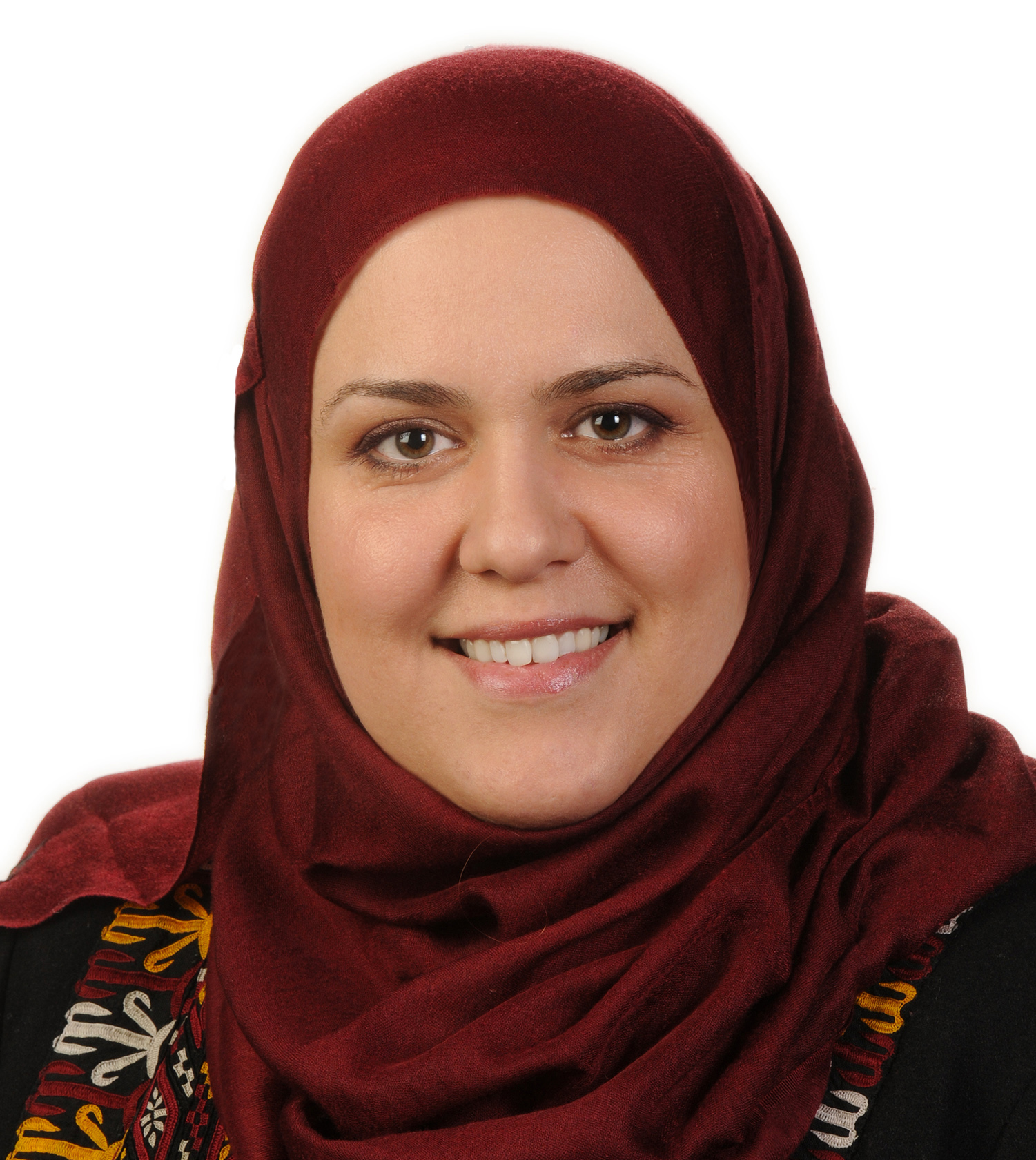 Palwasha: The topic of Muslim masculinity, and I’d like to change it to Muslim masculinities (as so may of the speakers before me mentioned) is so broad and there’s so many aspects of it that we can touch upon.
Palwasha: The topic of Muslim masculinity, and I’d like to change it to Muslim masculinities (as so may of the speakers before me mentioned) is so broad and there’s so many aspects of it that we can touch upon.
I want to begin with some questions that help get at some of the assumptions of what we’re talking about here. [These] relate to my work, particularly in engaging communities on the ground of peace building and how we deal with violent conflict around the world: “How do negative masculinities become drivers of conflict?”, “How is Islam used to create these masculine narratives?’, and “What can we do about it?”
The first assumption is, as Sister Donna very well articulated, this idea of dominance, in the family [and] beyond in other communities, and the strive to fight for that sort of dominance. The second is that Islam has been used as a veneer… to really talk about the space of masculinity, and Muslim men’s responsibility to take up arms and to do something about oppression. The third, “What can we do about it?”, is a good question and I don’t know if I really have an answer to this.
On an international level, we see that there is this usurping of religious discourse, [and it] is being used by all kinds of extremist groups. My background is working in Afghanistan, so I can give examples of the Mujahideen and their discourse being taken on by the Taliban, and then by Al Qaeda. Then we see more extremists and the more extremist versions of this. It’s definitely in the sense of recruiting men and boys, this idea of being a man, and standing up to injustice has been a very big part of that. A part of that is also about showing dominance and being angry, which I would like to get to shortly.
We need to speak about frankly and openly about how we understand [ourselves] as a global Ummah and how that [relates to] jihad. What is the responsibility of every Muslim to stand up for injustice as it relates to the land of Islam?
This whole notion of Pan-Islamism has come out of a post-colonial response… to injustices. How do we re-route that response in positive ways and not just as Muslim men and women, but generally, as human beings?
There’s also this whole concept of masculinity being that some of the misogynistic hadith that has led to very negative masculinities in Islam. Some scholars such as Khaled Abou El Fadl were saying that these hadith are a response in Islamic history to perhaps Syeda Ayesha, in her role as trying to become a leader. So we also should think about these ideas as they have been fostered within a specific context and response to that context.
In my experience working with men and women in Afghanistan, I’ve been able to do some dialogues with men about what gender means to them, and how [their] experience with extremist violence… has affected their sense of masculinity. Some of these men who grew up under the Taliban, said that, “To be a man meant not to cry. It meant that they were not allowed to show emotion, that they were not allowed to show love.” All of this also is in the context of being a man that is violent, that is aggressive, that is angry, to be a man to stand up against. But enveloped in that [is] the whole question of justice, and injustice, and standing up to injustice.
So we go back to the Prophetic tradition, and also to the Quran, that states that it’s so important to restrain your anger. In Surah Imran, verse 134, Allah says, “Obey Allah and the Messenger so that you may obtain mercy,” and “Who spends in the cause of Allah during ease and hardship, and who restrains anger, and who pardons their people. Allah loves those who do good.” …We do have, in Prophetic tradition, ways of overcoming this anger, and examples of it. How do we get to that point of a peaceful masculinity when this anger is being perpetuated?
Manal Omar, my colleague at the U.S. Institute of Peace, often says that if the youth and people who are in these states of injustice aren’t angry then they’re not paying attention. Anger is an important part of it, but how do we get to that positive channeling of that anger is the question.
Zainab Bangura, UN representative for sexual violence, has often said, “It’s not just about taking the guns out of the hands of men and boys when we’re working in these situations, but it’s taking it out of their heads as well.”
We’ve done a lot of work and have experience working with imams and khateebs on this moral obligation of men, and social responsibility, and men’s responsibility towards the family, and trying to change that notion of masculinity.
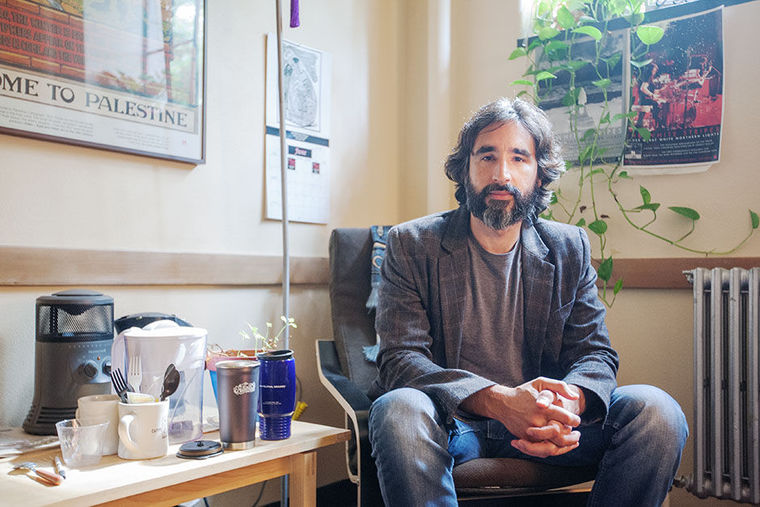 Michael: The conference [includes the] issue [of] feminism. Feminism, for me, has been an indispensable part of my own development, and my own critical analysis about gender, masculinity, etc… I’ve seen it produce some of the most interesting and dynamic discussions in Islamic literature in the contemporary period, over the last 2 decades.I want to strongly say that there’s an important piece, or role, for feminism in Islam that it has played and can continue to play.
Michael: The conference [includes the] issue [of] feminism. Feminism, for me, has been an indispensable part of my own development, and my own critical analysis about gender, masculinity, etc… I’ve seen it produce some of the most interesting and dynamic discussions in Islamic literature in the contemporary period, over the last 2 decades.I want to strongly say that there’s an important piece, or role, for feminism in Islam that it has played and can continue to play.
In this issue of feminism and masculinity, there are 3 particular areas that would be helpful for considering. The first is that we need to rethink the traditional literature, what we call the tradition, as broad as that is, in terms that critically examine and re-interpret according to the question of masculinity. For example, we need to ask,
“What kind of masculinities are posited by the tradition? Does it matter that the jurisprudential schools were established by men? If so, how?”
I think these are some important questions to link up with this question of the tradition in feminism. For example, when Dr. Kecia Ali suggests that “marriage is a fundamental contract rooted in the uninhibited sexual access of a man to his wife in exchange for a man’s maintenance of the wife”, we have to ask, “What kind of man is produced in that kind of a contract? What implicit notions of sexuality are present within that kind of contractual notion of a marriage? Can we critique this legal instantiation of manhood, which is constituted by unhindered access to his wife? Can we critique the contract itself to redefine marriage in a fundamental way?” We need to ask if the rights and obligations, for example, that we assign to men, or Islam assigns to men, are about the ontology, or the ideas about the nature of men and women, or if they’re about something else. In other words, are the rights and duties of men an effect of normalized social conditions, or are they grounded in some presumptions about the biologies, or the natures, of men and women?
My understanding is that the early traditional scholars actually didn’t talk about this stuff. Earlier today, somebody referenced an article by T.J. Winter, which I read recently. What I found so interesting about it was that somebody was supporting it. In the argument that he puts forth, he actually puts forth biological arguments about the natures of men and women. I think feminism has an important role to play in thinking about masculinity in relation to the tradition, as broad as it may be.
The second is that we need to engage in studies of how men actually understand, experience, and practice their manhood. My studies, for example, convince me that no matter how much people say they’re acting in their capacities as Muslims, meaning that Islam explains what they’re doing, there are a lot of other things actually going on in those actions and discussions.
…
My first experience with Islam was with the Nation of Islam. They had a project of masculinity that was explicit within the mosque. They talked quite a bit about male natures, and they talked about the Quran as legitimizing men’s roles in certain ways. I actually credit them for being one of the first to actually, even when I left the Nation of Islam, have open and explicit discussions about masculinity.
What was interesting about their discussions that was so important to me was that it wasn’t about masculinity in isolation from the legacies of White racial oppression and the destruction of the Black family. All the layers of oppression and suffering that Blacks have suffered in this country was very much part of how they were thinking about masculinity. Now, we could disagree with what they put forth, but the point was it was an intersection of a variety of things. What made manhood meaningful in that context could not be separated from the racial structures, economic, social, political, that have oppressed the Black family.
In Jordan, this summer, I was talking to young Palestinian men, and they were talking about their ambitions, their hopes, their futures, how they envisioned what a future would be like as young men. Most of them imagined themselves somewhere else. They could not imagine a future in Jordan because the economy was so bad, and the expectations for marriage in their country, and their social experience, were such that they felt they could never satisfy what was expected of them, so they needed to get out of the country in order to actualize their manhood and be providers, because that’s what was expected of them by the families of the women they presumably would want to marry.
Their entire sense of manhood was wrapped up in a desire to migrate, to establish a kind of economic position that puts manhood in relation to economy, and of course, borders in politics. Can they migrate? How do they migrate? This sort of thing. We need studies that look at what the experience of manhood is actually like for people. I think dignity is a really core piece to this.
How do men experience dignity as men? It’s one thing to say that I idealize that I could let my wife sort of take the reins in the home. It’s another thing to know what that feels like and understand and explore, why I feel threatened, perhaps, by that experience. We need to really take stock of what the experience of manhood is like for people.
The last piece, I think, is to move beyond scholarship and try to bring feminism and masculinity into particular community discussions. How can we talk about masculinity in a mosque among men? How can men talk about being men? What are the productive ways for doing that? We need to start to explore how we can make that happen, and what are the imperatives to produce Muslim masculinity in the first place? What’s driving that? What puts forth, in a local context, the question of masculinity because I don’t think we can actually come to a point in which we have a pure Muslim masculinity.
I think we’re always going to have masculinities shaped by the local conditions in which it’s happening. It’s a problem to assume that we can just take one example and say, “All Muslim men should be this way.” That’s not going to work. It has to be born out of the conditions of those communities, and in dialogue within those communities.
We have to try to figure out, “How can we have those discussions?” Feminism is so important for this because questions about how knowledge is produced, questions about power, patriarchy, and sexuality, all of these things, are very much parts of the conversations of feminism. They always have been and I think they’ll continue to be.
In addition to thinking about feminism, though, as questions about power, suffering, and oppression, we should also think about dignity… Feminism is also interested in the way that men and women experience themselves as such, and what kinds of feelings of empowerment may actually come from that, and where those are problematic, and where they aren’t.
Tariq: [Masculinity is] a very taboo subject among men.
I don’t know if any groups of men get together and talk about how fragile their masculinity is. I haven’t.
Muslim masculinity is the ability to use the unique properties bestowed by a loss, according to Allah, to amend, to empower marginalized groups of people without a materialistic attitude. The antithesis of [this definition], which we engage in all the time, is the ability to subjugate women using religious texts viewed through a peephole.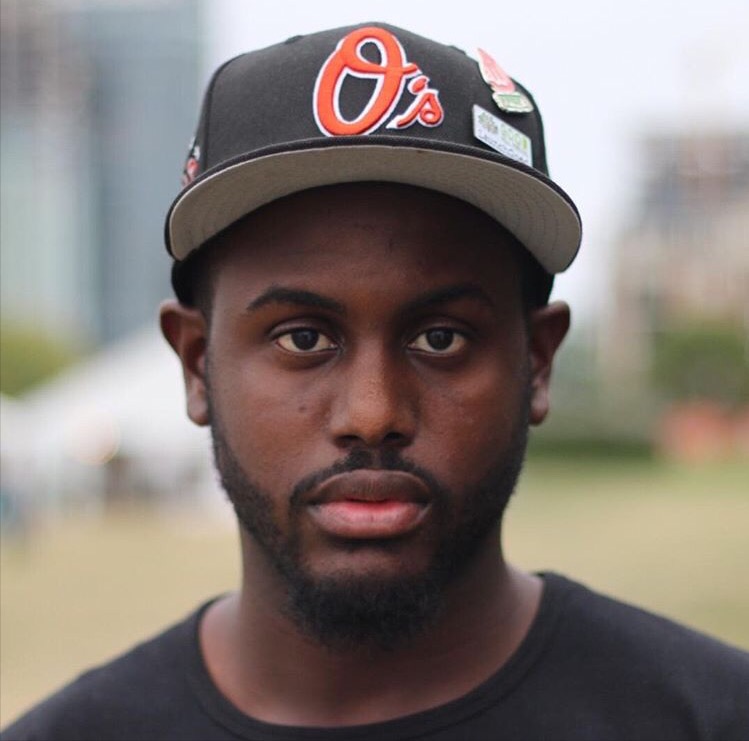
One thing I try to do as a writer, as all writers do, [is] tell narratives. I’ll give you 2 instances of 2 people who are completely different in practice, religions, sexual orientations, and I’ll put into context what I mean by my definition.
I was at a forum like this at a masjid in Prince George’s County, Maryland. It was after Baltimore [when] everybody wanted to put Baltimore under the microscope. There was a young Muslim girl named Sadia who stopped the whole show and said, “Look, we’re having a talk about after Baltimore and race when we have racist issues going down to the masjid and nobody’s even catering to the things that we go through every day.” Then a whole slough of kids who were 18 on down to 9 talked about the abuses they had gone through racially.
She started talking about the hashtag called #masculinityssofragile… and my masculinity was fragile. I stopped her, “Hold. Look, listen. This is what you can do. We’re going to have another forum that you can lead. We can get to it then.” But she really needed to have her needs addressed right then and there. I ended up talking to her afterwards because I realized what I had done, and she wasn’t trying to hear me out whatsoever. We have a better relationship now, because I’ve been able to put her in positions where she can voice those types of concerns. But at that moment, I had thwarted and suppressed the voice of this young Black Muslim girl.
I was covering some protests that were going on in Baltimore. A queer non-Muslim sister named Makayla Gillum Price led a protest in City Hall in Baltimore protesting the Commissioner that was being installed… She had been groomed since maybe about the 10th grade from the debate team and other people who had poured social injustice work into her… She stood in front of the new Commissioner Elect, and drilled him for about 15 minutes straight about everything that he was doing wrong. I watched this man, this grown man with 4 kids, crumble from a 17 year old. I thought to myself, “[In terms of] Muslims and [Muslim] structures, could we really have any man be crumbled by a 17 year old girl? Could we really provide a space where she could actually do that?” Until now, I believe that’s a negative. I’m hoping that through this conversation we provide some actionable items [that would benefit women like Sadia] and that we’re able to institute [those] immediately.
Shahed: Now I have several questions for the panel… I’m going to try to be a little provocative here… to [get at] the heart of some of these issues.
People reference our scholarly tradition in ways that subjugate women… It’s one thing to talk about that in an academic environment, but we are talking about a global community where I’d like to think that we’d want to provide some guidance so that we all have mutual beneficial relationships between men and women, but given scripture, and given what I see, the best I can see coming out of that is almost like a benevolent dictatorship, which is, “We have power. We’re just going to be nice to you.”
Is that the best we could hope for, or is there another way to construct this?
Palwasha: [From my experience], and [from] what Muslim religious leaders and scholars from other countries have been saying, it’s really helpful to bring Muslim scholars to talk to Muslim scholars [and] have that space where there… can be facilitated dialogue between [a] diversity of voices, those [with] more negative viewpoints on masculinity, and those that may have a more positive or peaceful sense of masculinity.
Muslim women need to be a part of that [space]. There [need to] be more women who are able to… use the scholarly jargon and language to be able to articulate, not only femininity, but also masculinity in a positive way.
Shahed: In the Afghan theater, which you’re very familiar with, [do] you think that this could have promise?
Palwasha: In Afghanistan I have seen it happen. We’ve had scholars from different parts of the country come together, predictably talking about some of these issues, like child marriage, or women’s right to work, or all of these women’s rights to travel. These different imams, and sheikhs, and khateebs talking to each other… opens their mindset and changes their perspectives on this.
Donna: I think for me that question is no different than any other type of project that we might embark upon as Muslims, or as people in general, to improve our condition. You might wake up in the morning and say, “They’re just this greedy 1%. They’re just snatching up all of the world’s resources. Is there any way that we can ever find a solution to that?”
“Can we ever find a solution to racism?”… Maybe I won’t see it in my lifetime completely because maybe… it’s the nature of the world, but as a Muslim, and a human being, I have to try. I have to continue. I can’t assume that justice is unreachable, and order my life in such a way that I… cave in. I can, I could, and many people do, but for me, that doesn’t give me a whole lot of motivation to get out of the bed everyday. I have to believe that there is something that I can do to move the ball forward.
If we’re talking about street level ability for some of this stuff to change, the story that comes to mind is the instance where Umar Ibn-Khattab is standing in the masjid, on the mimbar and he’s talking about limiting women’s dowry. A woman stands up in the masjid and says, “Bro, this not going to fly.” We think of him as a very manly man. He says, “The woman’s right and Umar is wrong.” Part of it is about being able to tap into who are we as people, spiritually, and [how we respond when] we’re confronted with truth.
People mentioned earlier about the selective attention that we pay to aspects of the tradition. But for me it’s all there. I don’t necessarily need to “go outside of Islam”. I’m not an isolationist. I read a whole bunch of stuff. I make use of all types of intellectual and spiritual traditions to find my own approach to my practice of Islam, but at the same time a lot of that is actually there. It’s there. There are instances, and there are principles, and there are things that we use to construct how we are supposed to go about correcting injustices, and doing these things. We have to realize that we’re always going to have to litigate these issues. That’s just the struggle of the world. Struggle is eternal and there’s always a need for vigilance and work to be done in order to move the ball forward.
Michael: I think there’s a tension with the tradition and I don’t think it’s going to be easily resolved. For example, the fact that the Prophet Muhammad, peace be upon him, as we know never outright said that slavery would be banned. As far as I know, I don’t think he ever said, “I am coming, I will end slavery.” But he also didn’t leave us with a future that meant that slavery had to be a part of it.
We have ethical imperatives as community… I take it as a presupposition that our job as Muslims is not to simply replicate; we have a role to play in the elaboration of our religion. I can’t see the ethical imperative in a community that wants to uphold an ayah, and let’s just assume that the ayah does let you beat your wife [and] it sits uncomfortably within our tradition. Where’s the ethical imperative for that to be something that we’re going to honor and uphold in a community? I think the ethical imperative is to say, “We don’t have to accept that, and we have, in the example of the Prophet himself, that he never beat his wife, the ingredients we need to move forward a future that makes that irrelevant.”
Now, I think there’s a tension in that statement. I know that not everyone’s going to accept it, but the way I look at it is, what are the ethical imperatives of the community as such, and what kind of Islamic future are we trying to produce as contributors? Not as simply replicators, but what will we make Islam for the future generation? In [the] case [of] domestic violence which affects every community, I can’t see why we would want that to stay with us. I don’t know why [there’s such a problem with] saying, “Well it does say you can, but as a community consensus we’re not going to accept that from anybody in the community. The Prophet never did it.”
Shahed: The average man looks at scripture and says, “Well, I can lead women in prayer and they can’t lead me in prayer.” Even if they are in every other way as egalitarian as possible, psychologically that gives license to feel superior. I wonder if there’s a wall that we just can’t get past because of that.
Tariq: We throw jargon around in the social justice movement. We say, “We will win eventually.” I think it’s harmful and problematic to think in absolutes.
When you talk about the benevolent structure that will happen, that means that we are thinking in relation to Muslim women like Muslim women are the Muslim man’s burden, which is highly problematic.
I think, for the most part, we have to understand that Islam will ebb and flow. We have to make it ebb and flow. That comes from more people becoming educated in the sciences. We have to also make sure that in our locale, the fiqh may change. So if you say something such as, “You can have 4 wives.” In my community, which you have a very impoverished community, I can’t just tell every brother to go ahead and get 4 wives. Man, you got to start with 1 wife and get that right. He may come back and say, “Well, I can have that. They’re okay with it.” Go ahead and move forward. But that’s problematic if they’re going through wife, after wife, after wife, after wife, and the community suffers.
Shahed: We have a question coming in from Twitter. How do we reward the humility necessary to engage in critical dialogue on masculinities? …Getting men to be vulnerable is a very tricky thing sometimes, so how do we encourage [and] stimulate that?
Donna: [Earlier today we] talked about the creation of safe spaces, to be able to allow for men and women to be able to express what it is at the root of the things that keep them up at night.
I’m in academia now, but my research comes from my years of experience on the masjid board, and on boards of other Islamic organizations. I don’t even go to the masjid most of the time anymore because many of our spaces are so toxic and forbidding. So much of what people are actually living with you can’t even talk about. You can’t talk about what it means to be a divorced woman in the Muslim community. Can you talk about, as a man, what it means to open up and expose [yourself], and talk about [your] fuzzy fuzzy feelings… and not be put down for that [or] have [your] manhood called into question?
We need to figure out ways to create safe spaces [and it] can look a lot of different ways… It can look like people having conversations with their Fatihs. I don’t know how many, I can’t count the number of times I’ve been in a masjid and I’ve heard a khutbah. Okay, I can’t really get up and interrupt a khateeb during jummah, but Lord knows I want to. Can we at least pull the Imam out and say, “Something that you said, it wasn’t right.” Community members have to be willing to do this work to say, “This is not making us feel safe.”
We have to take collective responsibility for figuring out ways to create those environments where people feel safe being who they are and who they want to become.
Continued in Part 2 of the Politics and Activism panel.

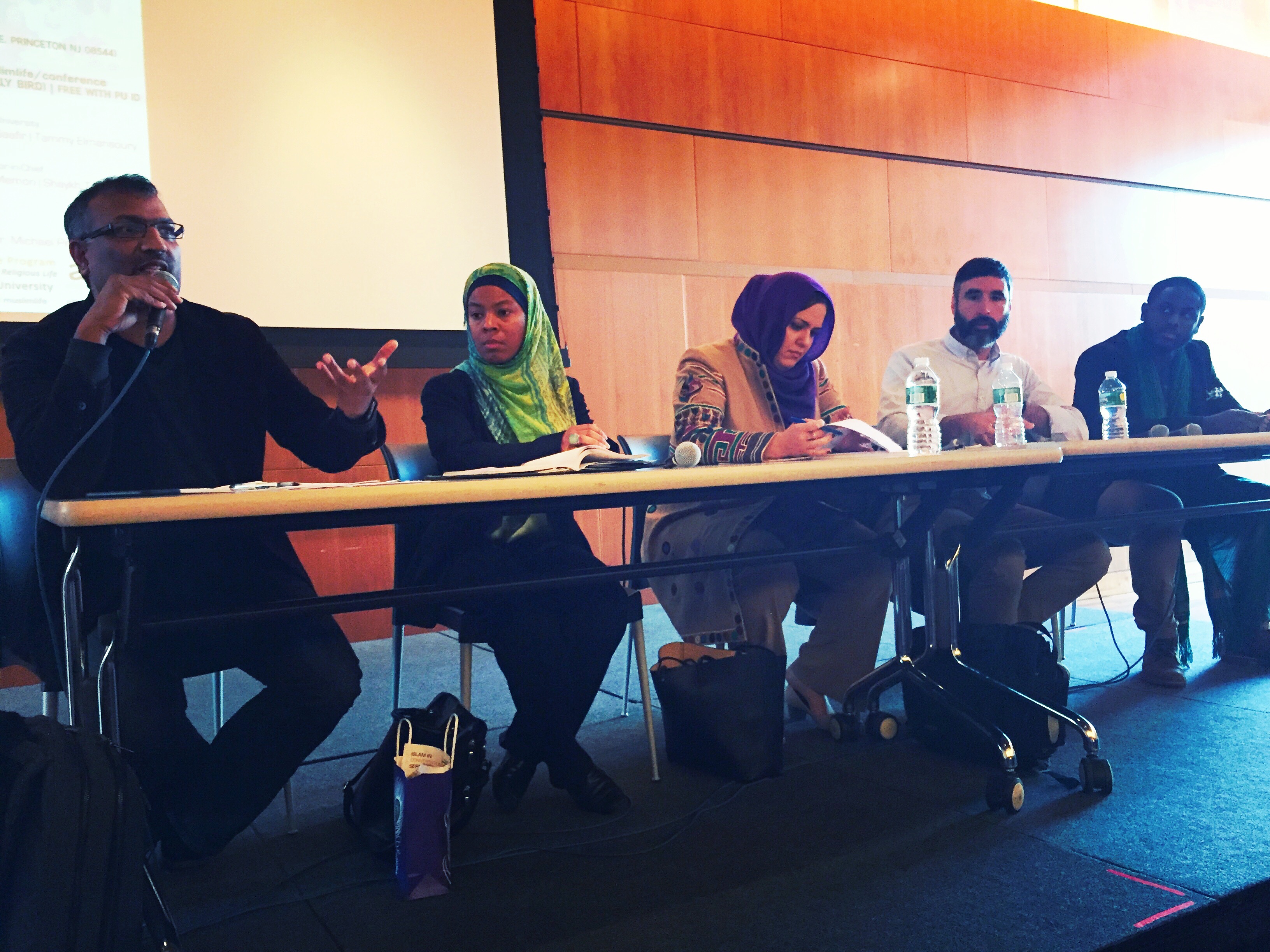



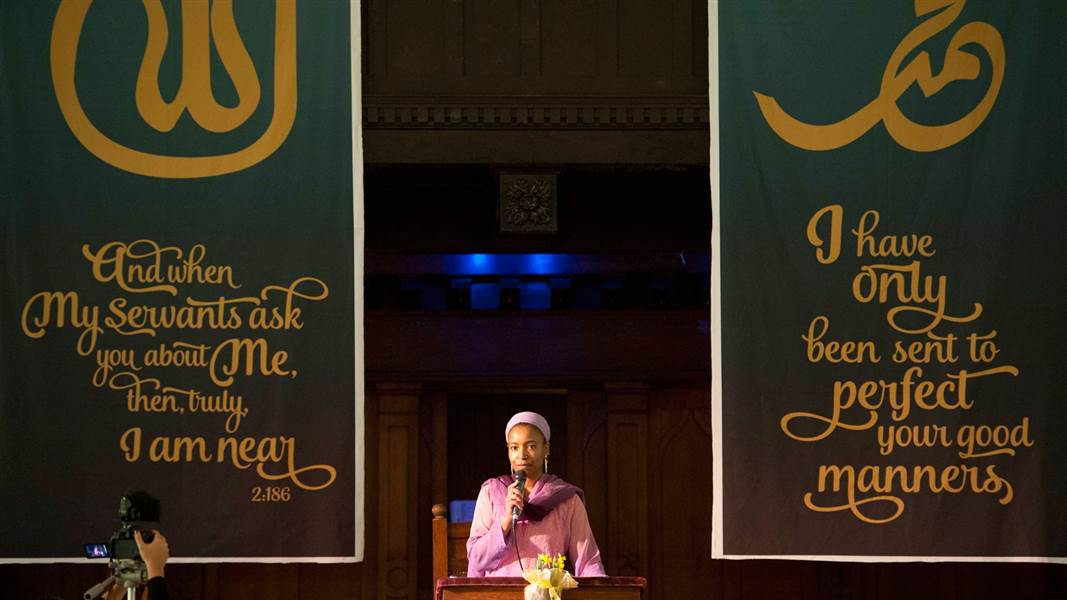
1 Comment